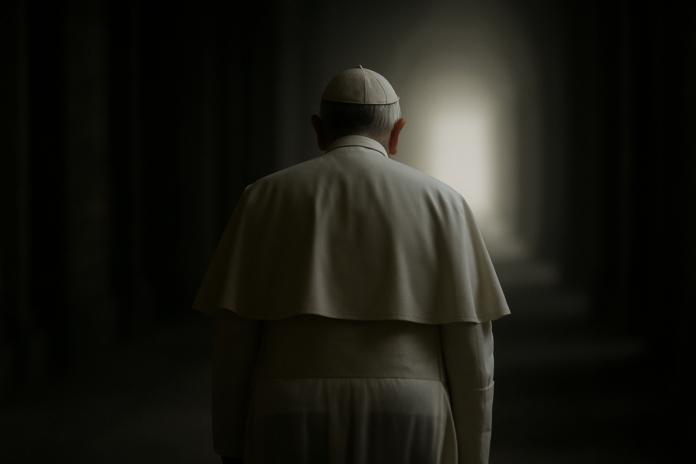I am not a Catholic. I don’t believe in transubstantiation, papal infallibility, or the sanctity of relics. I don’t genuflect before altars or confess sins to a priest. The rituals, the incense, the Latin chants—they are foreign to me. Yet, today, I find myself mourning the death of Pope Francis.
He was a strange Pope. Not eccentric, but dissonant. The first one from the Americas, not just Latin America. Argentine, porteño, Peronist in the most abstract sense of the word: contradictory, sensitive, baroque, shrewd. A Jesuit who chose to be called Francis. Simple, but not naïve. Conservative, but capable of saying things a Pope wasn’t supposed to say. He inhabited contradiction with elegance.
He wasn’t a saint. He wasn’t a revolutionary. But maybe he was the most decent thing one can expect from a real Pope, in this real world. He cared about climate change and said so out loud. He stood with migrants when the global discourse was turning them into a threat. He spoke out against the death penalty, against hunger, against exclusion. He said savage capitalism was a form of violence. He said the Earth was sick. And he also said: “Who am I to judge?”, speaking of homosexuals. A minimal phrase, but with the weight of centuries.
He did it from the inside. From power. From that archaic, misogynistic, authoritarian institution still called the Church. But he tried. He tried to push it somewhere else. He didn’t get as far as many of us would’ve liked. He held rigid positions on abortion, didn’t allow women into the priesthood, took too long to act on sexual abuse. He was ambiguous when he should have been firm. And yet: he pushed.

What he did was try to move a structure that wasn’t built to move. He tried to make a vertical institution function with something resembling empathy. He understood that, for the Church not to die of irrelevance, it had to look at the world, not just the gospels.
The death of Francis is not just the death of a religious leader. It’s the end of an attempt. Of an experiment. Of a slight opening in a door of iron. He represented an uncomfortable idea: that even from the center of power, one can choose to stand with the weak. Not always. Not fully. But sometimes. A little.
He wasn’t one of ours. But he wasn’t one of theirs, either. He inhabited that in-between space with dignity. With shrewdness. With compassion. Sometimes with courage.
And that, in times like these, is no small thing.
